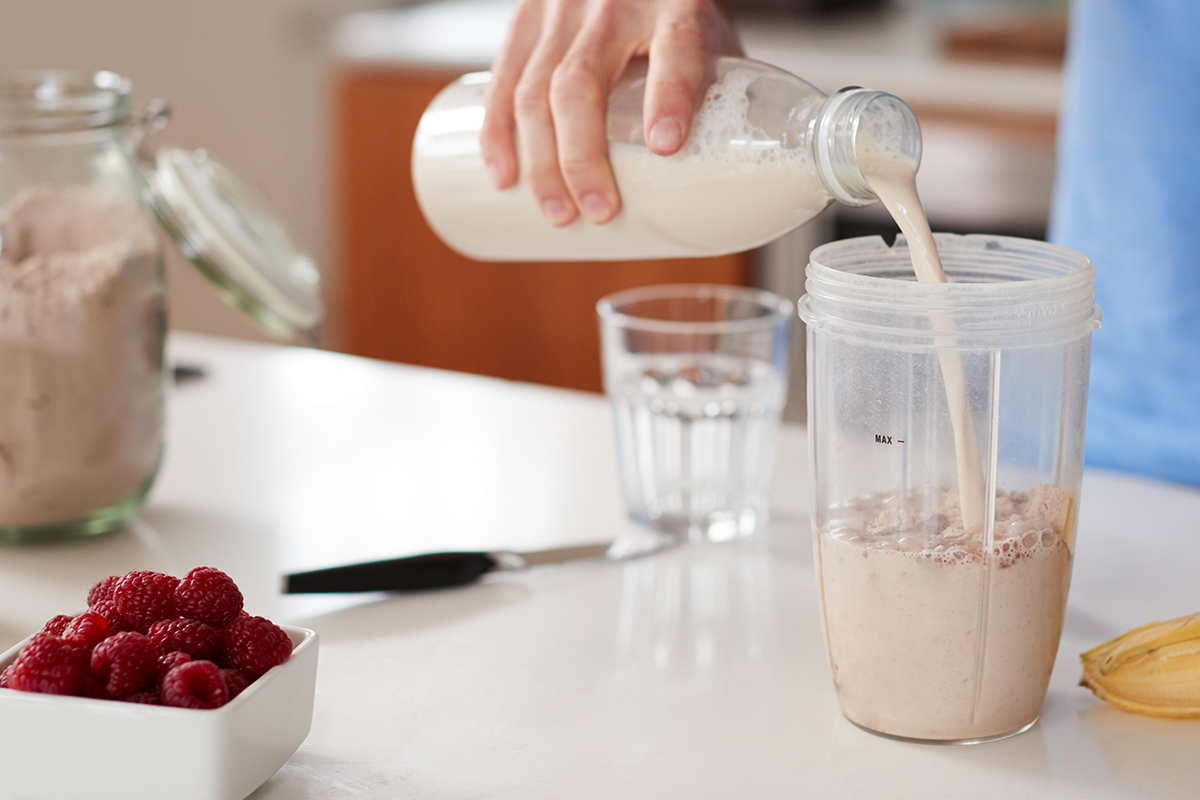
Question:
I have heard much talk on the internet about the need for serious bodybuilders to take in nutrition steadily, especially protein. It is claimed that muscle growth slows and reverses at night after digestion completes and the body starts catabolizing for energy. Many suggest using a slow-digesting protein such as casein at night to feed muscles protein constantly and ward off catabolism. Is this shown to be effective? If so, are there any other ways to reduce catabolism at night?
– David G.

Answer:
You posed a unique question, David! The body’s skeletal muscle not only dictates much of our circadian rhythm but also follows a day/night routine for repair and building. Research shows that muscle impacts the gene activity that regulates the utilization and storage of substrates (the macronutrients carbohydrate, fat, and protein)1. In other words, the skeletal muscle itself affects catabolic and anabolic processes over a 24-hour period, though this effect is not well understood.
Regardless of the time on the clock, you need to consume macronutrients post-exercise to promote positive muscle-protein balance. For evening exercisers, a recovery meal or shake becomes key before fasting overnight during sleep2. Over 6-8 hours, slower-digesting proteins have a similar effect on muscle protein synthesis as fast-digesting proteins do in the first 3 hours. So grandma was right about having a glass of warm milk before bed, as milk is 80% casein.
What about supplements/amino acids? Though certain essential amino acids stimulate muscle protein synthesis more than others, intact protein may result in a greater positive balance. This is partly because whole foods result in a greater insulin secretion. Muscles are highly insulin-sensitive for nutrient uptake and storage3. In summary, a meal containing protein is better than a straight supplement in the evening.
References
- The endogenous molecular clock orchestrates the temporal separation of substrate metabolism in skeletal muscle. Brian A Hodge et al. Skeletal Muscle. 2015; 5: 17.
- Influence of Amino Acids, Dietary Protein, and Physical Activity on Muscle Mass Development in Humans. Kasper Dideriksen, Søren Reitelseder, and Lars Holm. Nutrients. 2013 Mar; 5(3): 852–876.
- The Role of Circadian Rhythms in Muscular and Osseous Physiology and Their Regulation by Nutrition and Exercise. Shinya Aoyama and Shigenobu Shibata. Frontiers in Neuroscience. 2017; 11: 63.
.
– Debbie J., MS, RD
This article should not replace any exercise program or restrictions, any dietary supplements or restrictions, or any other medical recommendations from your primary care physician. Before starting any exercise program or diet, make sure it is approved by your doctor.
Some questions have been edited for length and/or clarity.
Ask our Dietitian
 Have a nutrition question? Our registered dietitian is ready to help!
Have a nutrition question? Our registered dietitian is ready to help!
Email nutrition@lafitness.com or submit your question below and it may be featured in an upcoming article!
Recommended Reading - Q+A
Nutritious Green Foods You Didn’t Know About
Good nutrition is all about variety! Browse through our list of unusual fruits and veggies and give yourself a chance to try something new.
Salt Grains for Muscle Gains?
Does liberally salting your food help you pump more iron in the gym? Registered Dietitian, Debbie James, investigates the claims!
How Much Protein Does Your Body Need?
One frequently asked question is about the recommended intake of protein. We hear you! Here is everything you need to know.



